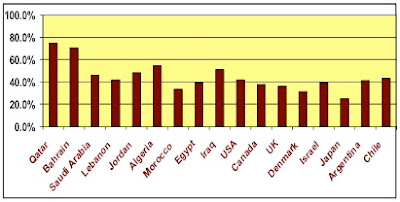Developereo
ELITE MEMBER

- Joined
- Jul 31, 2009
- Messages
- 14,093
- Reaction score
- 25
- Country
- Location
In fact some of the most famous scientists and mathematicians in history held deep religious beliefs
One of the most ironic examples in recent times is that the inventor of the gene gun, John Sanford, is an anti-evolutionist. Since the overwhelming majority of mutations in nature are harmful, he argues that, statisticaly, genomes should deteriorate far faster than any beneficial mutations could possibly accumulate.
An 'open' market is a democratic market and that is exactly what China did -- opened her market -- to foreign investments. So the experts remained correct.
I actually wrote "open societies" in the sense of... (wikipedia)
The open society is a concept originally developed by philosopher Henri Bergson. In open societies, government is responsive and tolerant, and political mechanisms are transparent and flexible.
Maybe open societies are not a prerequisite for economic development. China certainly has done well without one.
These are the people who are happy living their lives in a shell and don't contribute to productivity.
I was trying to summarize the necessary ingredients for successful economic development and came up with an acronym. It can be adapted with a slight modification to the question of scientific and technological progress.
What is needed are good TIMES: Talent, Infrastructure, Motivation, Entrepreneurship and Stability.
Talent: basic innate talent is spread randomly around the world, but is wasted unless developed and nurtured through good education and training.
Infrastructure: Einstein wouldn't have been able to do squat if he had been born as a Kalahari Bushman. Any researcher needs money, equipment, access to the global knowledge network, etc.
Motivation: this can come from capitalism (race to market), patriotism (moon landing), or authoritarianism (Stalin). Motivation can be destroyed by negative factors like corruption, nepotism, etc.
Entrepreneurship: nothing ever gets achieved without a certain level of curiosity and risk taking. This is the driver of science.
Stability: this can mean either physical safety of people and equipment, or financial stability throughout project lifetimes. Dictators provide stability, at least up to regime change, but democracies can have their own challenges (stem cell research funding in the US).
In the context of the Muslim world, we have problems with talent and motivation. Our education system is usually hopeless so it doesn't develop innate talent or prepare people adequately for advanced research. Also lacking is the motivation, because the culture doesn't reward research and scientific achievement.
Last edited:

 )
)




